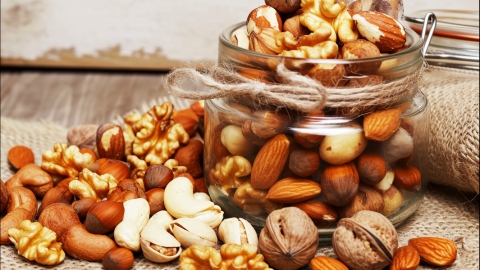What foods can increase high-density lipoprotein (HDL)?
Generally, specific foods that can help increase high-density lipoprotein (HDL) include salmon, almonds, olive oil, soybeans, and oats. If there is a need to regulate blood lipid levels, these foods can be appropriately incorporated into daily meals. Detailed explanations are as follows:
1. Salmon
Salmon is a common deep-sea fish rich in omega-3 fatty acids. This component promotes HDL synthesis and helps lower triglyceride levels.
2. Almonds
Almonds belong to the category of nuts and contain abundant unsaturated fatty acids, plant sterols, and dietary fiber. These components inhibit cholesterol absorption in the intestines and promote HDL transport function.

3. Olive Oil
Olive oil is a high-quality vegetable oil rich in monounsaturated fatty acids, especially oleic acid. Replacing some animal fats with olive oil in cooking reduces saturated fatty acid intake, stimulates HDL production, and helps remove excess cholesterol from blood vessels.
4. Soybeans
Soybeans are common legumes containing plant protein, dietary fiber, and soy isoflavones. These substances regulate lipid metabolism in the liver, promote HDL synthesis and secretion, and can be consumed in various forms such as soy milk, porridge, or tofu to increase intake frequency.
5. Oats
Oats are rich in beta-glucan, a type of soluble dietary fiber that binds to cholesterol and promotes its excretion from the body. It also stimulates HDL production and enhances its ability to clear lipids from blood vessels. Cooking oats for breakfast porridge or consuming them with milk is simple, convenient, and effective.
Dietary adjustments should be combined with regular exercise and healthy lifestyle habits to more effectively increase HDL levels. If one already has conditions such as hyperlipidemia, comprehensive management under medical guidance is necessary, and relying solely on dietary changes is not sufficient.








